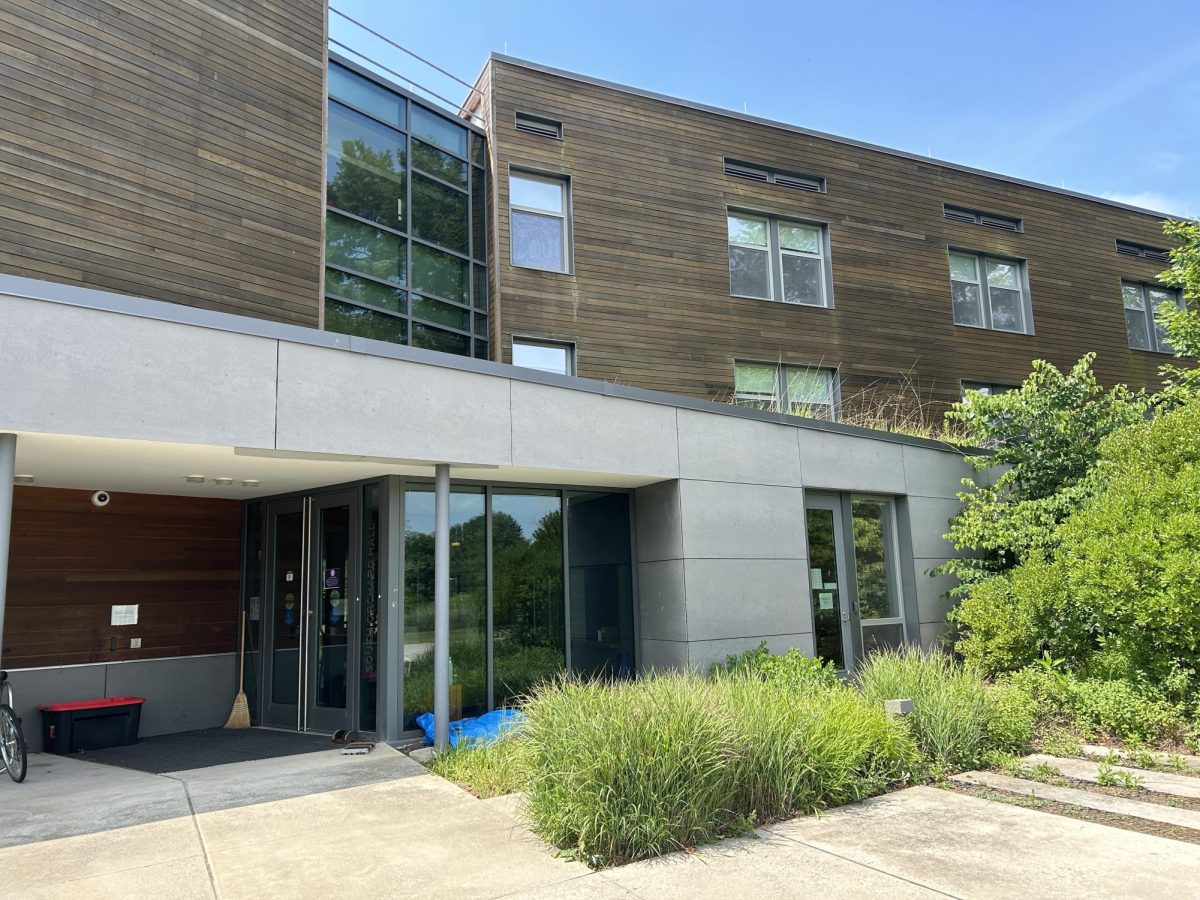Like any Chatham University student, I remember exactly where I was when the University announced — on a random Monday in July — that they would be closing Orchard Hall, Eden Hall’s only residence location.
Immediately, a single thought crossed my mind: “Can they do that?” Followed by: “Why’d they do that?” And finally, “YikYak is about to go insane.”
And that it did. As students frantically shared concerns and frustrations, the news sent shockwaves through the community. The hasty, poorly-explained decision left many feeling blindsided.
Chatham has a unique way of delivering breaking news to students: incredibly long emails with incredibly life-changing news casually buried within. One could argue it feels deliberately distracting. The little communication we do receive is simply not enough — often half-baked, PR-approved “nothing burgers.”
Sure, the administration may have felt Orchard Hall’s closure was necessary due to financial strain, but why this dorm in particular? What role did it play in the University’s debt? Was closing the only residence on the Eden Hall campus really the best solution?
In my search for more transparency regarding the closure, I first turned to my fellow students.
Lindsey Disler, a second-year graduate student in the food studies program who had come to consider Eden Hall her home, shared her frustrations over a lack of communication.
“They’re claiming they lost $400,000, but it’s unclear where or how. Despite experts here at Eden Hall offering solutions, they never even asked for our input,” she said.
Disler pointed to the role of Parkhurst Dining in the decision:
“They’re a big part of the lack of transparency. They’ve been really obscure about where they’re losing money,” she said.
The suddenness of the announcement didn’t help.
“Literally, the Friday before, Chatham was reminding us to pay our housing deposits. Then, by Monday, the dorm was closed,” Disler added.
Following my conversation with Lindsey, I turned to Lou Leonard, dean of Eden Hall, for an insider’s perspective. Leonard expressed his disappointment over the situation, explaining that, despite efforts, Orchard Hall had struggled to reach full occupancy.
“The experience of students who lived in Orchard Hall was very positive, but we just never managed to fill the residence hall to capacity,” Leonard explained.
Parkhurst Dining did factor into the decision, according to Leonard: “The cost vs. revenue for operating both the dorm and the dining hall was one of the factors we looked at during evaluations.”
He emphasized his desire for more involvement from the University community moving forward.
“We’re planning a more inclusive process, where students, faculty, and staff will have opportunities to provide ideas on the future of Orchard Hall,” Leonard said, connecting this process to the University’s broader middle-state accreditation efforts.
Leonard also addressed the concerns of maintaining a vibrant campus culture at Eden Hall despite the changes.
“It’s important for us to support students who are disappointed by this decision,” he said. “We need to make sure Eden Hall continues to be a place where classes, social events, and community engagement thrive.”
As I reflected on the closure and the conversations that followed, it became clear that this is not just a financial issue — it’s a communication issue. Budget cuts and tough decisions are inevitable at a school recovering from millions of dollars worth of debt, but when those decisions are coupled with last-minute, vague emails, it becomes harder for students to feel heard and respected and even harder for them to be understanding.
As Lindsey perfectly put it: “Chatham is us — not them.”
Chatham University isn’t just its administration; it’s the students, the staff, the faculty — and we deserve better communication. If the original email had included the detailed explanations Dr. Leonard shared in our interview — and had been sent out well before classes started — how different would the student response have been?
Jada Jenkins can best be reached at jada.jenkins@chatham.edu.




